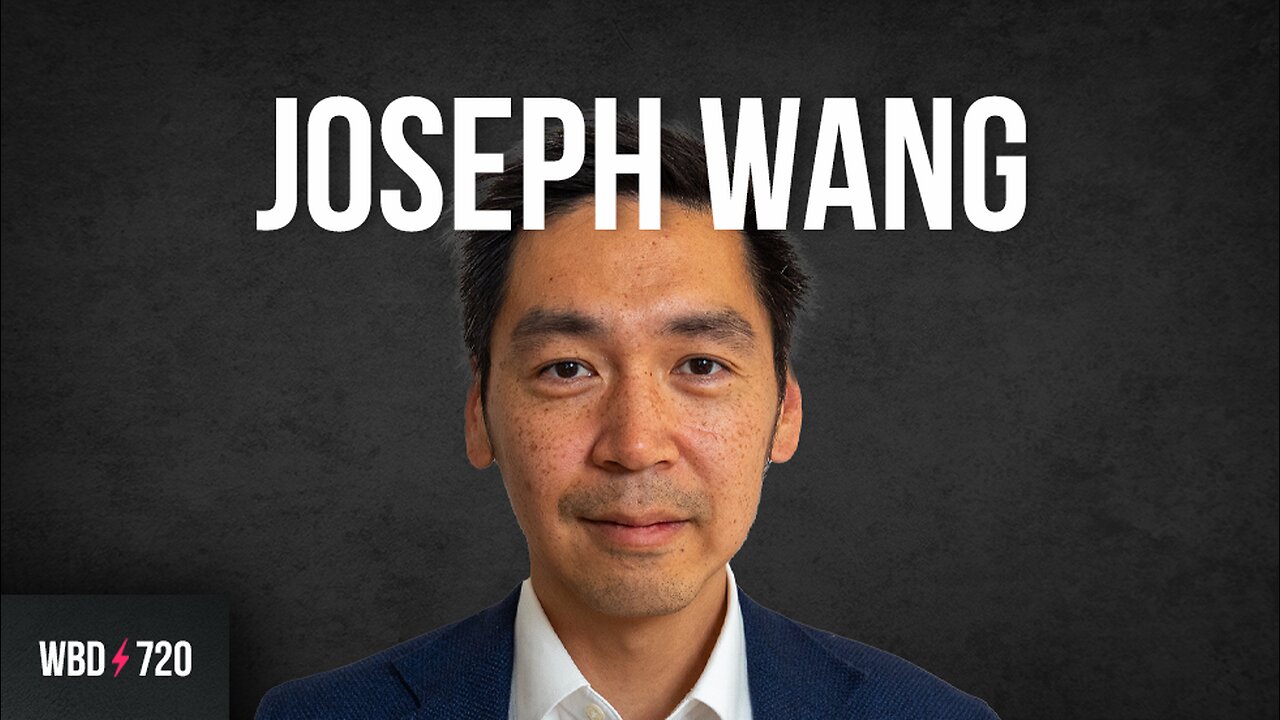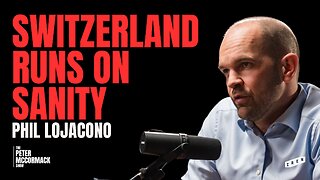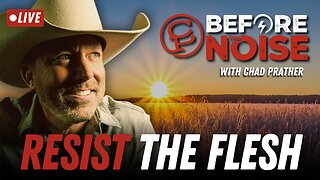Premium Only Content

How the Federal Reserve Works with Joseph Wang
SHOW NOTES:
https://www.whatbitcoindid.com/podcast/how-the-federal-reserve-works
Joseph Wang is a former senior treasury trader at the Fed who now runs Fedguy.com, a research blog on financial markets. In this interview, we discuss his experience working on the Fed's treasury trading desk, the role of central banks and how this has expanded over time, the relationship between the Fed and the Treasury, quantitative easing, deficit spending, the growing national debt, and the benefits of decentralisation.
THIS EPISODE’S SPONSORS:
Iris Energy - https://irisenergy.co/
Wasabi - https://www.wasabiwallet.io/
Ledger - https://www.ledger.com/
Unchained - https://unchained.com/
Orange Pill App - https://www.theorangepillapp.com/
SUPPORT THE SHOW:
→ Become a Patron: https://www.patreon.com/whatbitcoindid/
→ Subscribe on iTunes
→ Leave a review on iTunes
→ Share the show out with your friends and family on social media
→ Drop me a line on [email protected]
→ https://www.whatbitcoindid.com/sponsorship/
TIMESTAMPS:
00:00:00 Why Central Banks?
00:09:02 Central bank 101
00:16:29 QE, inflation, treasury market
00:29:00 Crisis coming?; political corruption
00:39:11 US centralisation; Bitcoin
00:47:26 End the Fed?; CBDCs
00:56:31 What will Powell do?
WHERE TO FIND THE SHOW:
→ My website: https://www.whatbitcoindid.com/podcast/
→ iTunes: https://apple.co/2OOlzVV
→ Spotify: https://spoti.fi/2ygc4W1
→ Stitcher: https://bit.ly/2IQO8fX
→ SoundCloud: https://bit.ly/2CGSVQR
→ YouTube: https://bit.ly/3nyi9Ez
→ TuneIn: https://bit.ly/2ywystr
LISTEN TO OLD EPISODES:
→ By guest: https://www.whatbitcoindid.com/guests/
→ By topic: https://www.whatbitcoindid.com/topics/
→ Transcriptions: https://www.whatbitcoindid.com/transcriptions/
WHERE TO FOLLOW ME:
→ Twitter: https://twitter.com/whatbitcoindid/
→ Medium: https://medium.com/@whatbitcoindid/
→ Instagram: http://instagram.com/whatbitcoindid/
→ Facebook: https://www.facebook.com/whatbitcoindid/
→ YouTube: https://www.youtube.com/whatbitcoindidpodcast
→ Website: https://www.whatbitcoindid.com/
→ Email list: https://www.whatbitcoindid.com/subscribe/
LEARN ABOUT BITCOIN:
→ Step by Step Guide: https://www.whatbitcoindid.com/learn-bitcoin
→ Training: https://www.whatbitcoindid.com/training/
→ Resources: https://www.whatbitcoindid.com/resources/
#Bitcoin #Finance #Economics
****
“When you have more political centralised control, there’s a lot more vulnerability to things like corruption and mismanagement and I think that’s where we’re headed; so, I’m actually quite pessimistic for the global economy for the next decade.”
— Joseph Wang
Joseph Wang is a former senior treasury trader at the Fed who now runs Fedguy.com, a research blog on financial markets. In this interview, we discuss his experience working on the Fed's treasury trading desk, the role of central banks and how this has expanded over time, the relationship between the Fed and the Treasury, quantitative easing, deficit spending, the growing national debt, and the benefits of decentralisation.
- - - -
The Federal Reserve is the United States Central Bank. Established in 1913 after a series of banking panics, its primary purpose was to provide a more stable and reliable banking system by regulating financial institutions, providing banking services to the government, and promoting financial stability. However, the Fed’s role has expanded over time to encompass market interventions in response to economic fluctuations and financial crises.
One crucial aspect of the Fed's remit is the implementation of monetary policy. Through tools such as open market operations, reserve requirements, and interest rate adjustments, the Fed seeks to control inflation, stabilise prices, and promote maximum employment. As the economy has become more complex, so has the Fed’s toolkit to address emerging challenges to include extreme actions such as becoming the lender of last resort and quantitative easing.
A popular criticism is that the Fed’s actions have materially affected the state’s increasing and unsustainable deficit and debt growth. Whilst the Fed does not have the power to directly increase or decrease deficits, it can indirectly contribute to deficits through its monetary policy actions. Regarding the national debt, the Fed currently owns significant amounts of U.S. government bonds, resulting from its efforts to stabilise the economy during times of crisis.
A more fundamental issue is the Fed’s potential role as the centralised authority in the control of money. CBDCs provide for the complete digitisation of money and the disintermediation of retail banks, which would provide the Fed with even more capacity to affect monetary policy. Despite the risks to personal sovereignty, such power would be too tempting for central bankers to forgo. Essentially, decentralisation is needed to keep the Fed in check. All roads lead to Bitcoin!
-
 1:34:07
1:34:07
The Peter McCormack Show
5 months agoWhat Broken Democracies Can Learn from Switzerland | Phil Lojacono x Peter McCormack Show
332 -
 LIVE
LIVE
Chad Prather
15 hours agoThe Secret To Pleasing The Lord Over Man!
8,918 watching -
 LIVE
LIVE
LFA TV
10 hours agoLIVE & BREAKING NEWS! | THURSDAY 11/6/25
5,393 watching -
 52:16
52:16
American Thought Leaders
17 hours agoIs There a Link Between Mass Shootings and SSRIs?
25.8K28 -
 17:12
17:12
World2Briggs
18 hours ago $0.01 earnedTop 10 Towns You Can Retire or Live on $1900 a month in the Midwest #1
9.59K1 -
 17:25
17:25
BlackDiamondGunsandGear
1 day agoCustom Building the Cheapest MP5
13.6K1 -
 LIVE
LIVE
BEK TV
23 hours agoTrent Loos in the Morning - 11/06/2025
176 watching -
 8:10
8:10
The Shannon Joy Show
17 hours agoShould we even VOTE anymore?
17.1K23 -
 59:34
59:34
Dialogue works
1 day ago $0.02 earnedMohammad Marandi: It’s WAR: Iran’s Supreme Defense Council ACTIVATES –Hezbollah REFUSES to Surrender
49.9K11 -
 10:23
10:23
TheSaltyCracker
18 hours agoMuslims Immediately Threaten New Yorkers After Zohran Win
43.7K456